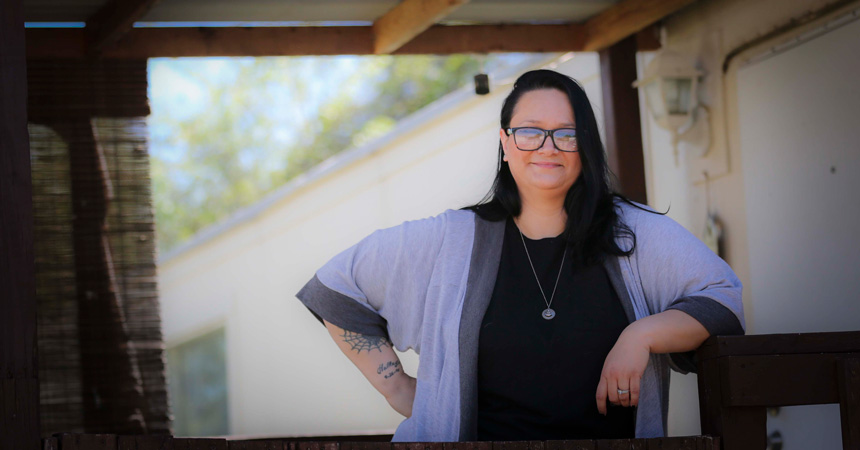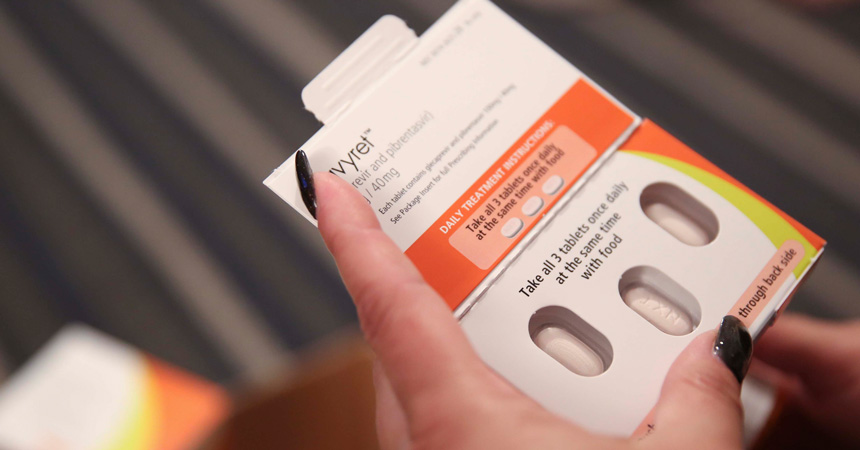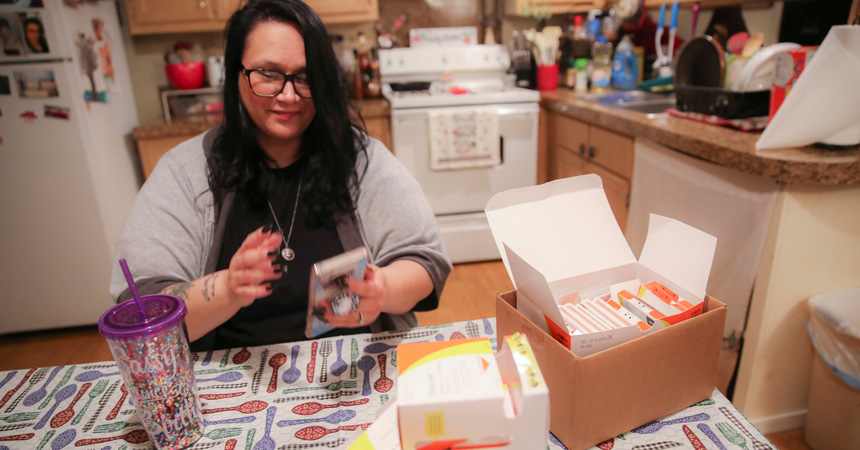HSC pharmacist helps woman with hepatitis C get the help she needs
By Jan Jarvis

Andrea Harkins could not stop sobbing as she opened a cardboard box filled with medications.
“This is life-changing,” she said. “I’ve waited 20 years for this day.”
Harkins has lived with hepatitis C for two decades. She is among the 3.5 million people in the United States who have the virus that is linked to liver cancer.
But after becoming a patient at the Hepatitis C Clinic at UNT Health Science Center, Harkins won’t be living with the disease much longer.
“A huge weight has been lifted off my shoulders,” she said. “I’m finally going to be cured.”
Harkins hopes that by sharing her story, others will be encouraged to seek treatment.
“I wanted to do the video because hepatitis C has been such a huge part of my life,” she said. “With the videos, I can see a difference from day-to-day and watch my life changing.”
In 2011, new medications were introduced that promised to cure up to 99 percent of people with hepatitis C in 12 weeks or less. But the cost – $12,000 a month or more – has kept the drugs out of reach for many, including Harkins. She sought treatment but Medicaid denied the request.
“They said I wasn’t sick enough,” Harkins said.
That is when Dr. Jennifer Fix, PharmD, Associate Professor of Pharmacotherapy, went to work getting Harkins the medications.

“Coverage is a challenge, and Medicaid requires people to reach a certain level of the disease or they are automatically denied,” she said.
As a pharmacist who works in the Hepatitis C Clinic, Dr. Fix has an in-depth understanding of insurance coverage, medication management and patient care.
Even when patients have private insurance, co-pays can be steep.
Despite repeated rejections, she finally got Harkins enrolled in a Patient Assistance Program that covered the entire cost.
“It takes a lot of effort, but we are committed to helping patients have access to the resources they need to complete treatment,” Dr. Fix said.
Having a pharmacist on the team has made it more effective, said Monte Troutman, DO, Associate Professor Internal Medicine and Geriatrics.
“I have no doubts that having a pharmacist has significantly improved our efficiency and effectiveness in treating hepatitis C,” said Dr. Troutman, a gastroenterologist who practices in the Hepatitis C Clinic. “Interaction with pharmacies, insurance companies, as well as monitoring for side effects and drug effectiveness are time consuming but are now done with the help of pharmacists.”
Hepatitis C is an under-diagnosed and under-treated curable disorder, Dr. Troutman said. There are more than 3 million Americans with chronic hepatitis C, many of whom are unaware that they have the disease, he said.

“I actually think all Americans should be tested at least once, and those involved with risky behavior more frequently,” Dr. Troutman said. “In fact, the CDC recommends all baby boomers be tested.”
Harkins has known she had the virus since was 19 and tried to donate blood. She contracted it from a man who held her against her will,
Harkins said. She escaped, but symptoms of the virus gradually appeared.
“I was tired all the time, and my moods were all over the place,” she said. “I never got jaundice, but the weight of feeling so tired was terrible.”
She was already a patient in the Family Practice clinic when she was referred to Dr.Troutman, who diagnosed hepatitis C. He then referred her to Dr. Fix to educate the patient about a treatment plan, prescribe medication and work with specialty pharmacies, insurance and patient assistance programs.
Since she began treatment March 15, Harkins has not had any side effects from the medication. She said she feels better every day and is grateful for the treatment she has received.
“When I’m done, I’ll feel like a brand-new woman,” she said. “I’ll be able to walk down the street knowing that this is a life worth living.”






Social media